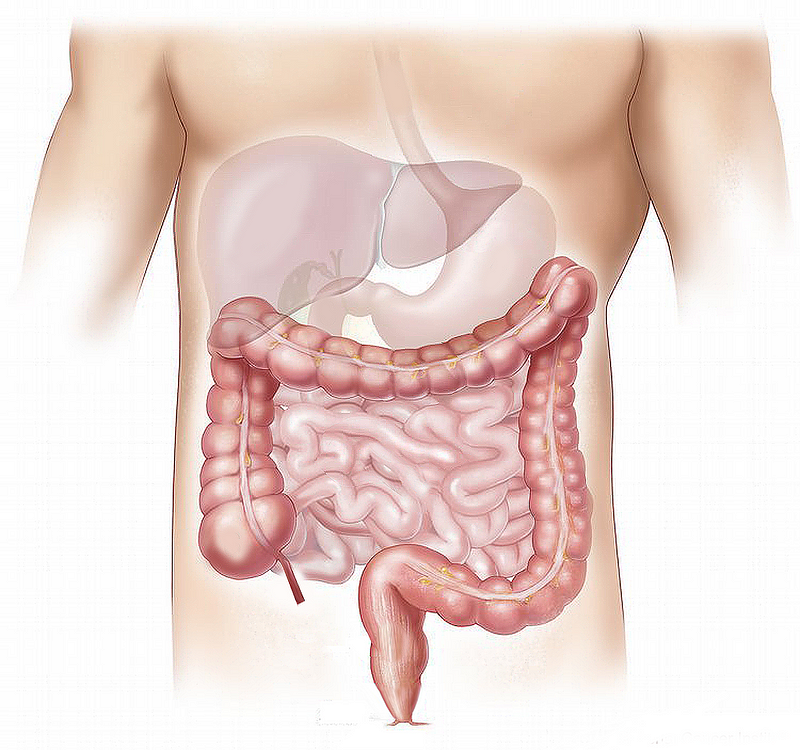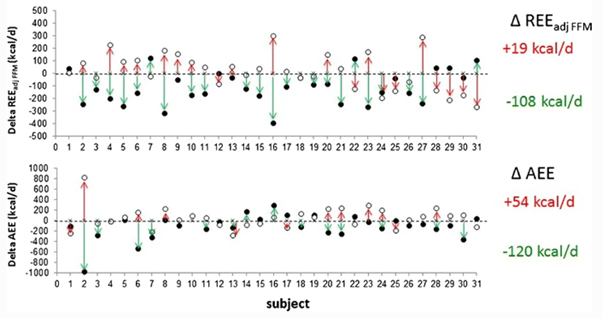Why Do Some People Seem to Eat a Lot Without Gaining Weight?
Written on
Understanding the Mystery of Excess Caloric Intake
Many of us have that one friend who can indulge in large meals without ever appearing to gain weight. This phenomenon often leaves us wondering about the fate of those extra calories. To simplify, let's assume our friend is healthy, without hormonal imbalances or intestinal infections, consumes real calories rather than just fiber, maintains a consistent exercise routine, and does not engage in behaviors like self-induced vomiting.
The fundamental question remains: Where do those excess calories go if they aren't converted to fat? At its core, all dietary approaches operate on the principle of calories in versus calories out. Even established diets, such as the ketogenic diet, adhere to this rule. The "calories-in" aspect represents what we consume, while "calories-out" includes several components:
- Resting Energy Expenditure: The calories burned to maintain bodily functions while at rest, which constitutes over 60% of total energy expenditure.
- Diet-Induced Energy Expenditure: The calories expended in the processes of digestion, absorption, and storage of nutrients.
- Activity-Induced Energy Expenditure: The calories burned during physical movement.
In this article, we will explore common questions surrounding the mystery of unaccounted calories, such as:
- Are calories not fully absorbed from the intestines?
- Does increased calorie intake raise the energy cost of digestion?
- Is a high metabolic rate responsible for burning off surplus calories?
By the end, we will also discuss whether resistance to weight gain is merely an illusion and provide key insights that may clarify why some people manage to avoid weight gain despite seemingly high caloric intake.
Are All Calories Fully Absorbed?
It seems logical to think that consuming too many calories could overwhelm the digestive system, leading to incomplete absorption. However, this notion is largely a myth. On average, our intestines absorb over 90% of calories from a typical diet. When food volume increases, it can slow down transit through the digestive tract, a process regulated by the autonomic nervous system without our conscious awareness.
Studies measuring calories in stool show that even when individuals consume 50% more calories than usual, the quantity of calories excreted remains unchanged.

The only way to significantly reduce calorie absorption is by increasing dietary fiber intake. For example, consuming an extra gram of dietary fiber may only increase fat excretion by 4 to 8 kcal. Given that the average American consumes around 16.2g of total dietary fiber daily, our friend would need to consume substantial amounts of fiber to eliminate excess calories before absorption occurs.
Does Digestion Require More Calories with Increased Intake?
Typically, in a Western diet, about 10-15% of a meal's calories are allocated to diet-induced energy expenditure. While consuming larger meals does raise overall energy expenditure, the percentage of calories spent on digestion remains constant. Thus, 85-90% of those calories are still available for the body to use.
To decrease the proportion of calories available, our friend would need to adjust the macronutrient composition of their diet. The contribution of each macronutrient to energy expenditure is as follows:
- Fat: 0-3% kcal
- Carbohydrate: 5-10% kcal
- Protein: 20-30% kcal
This means if our friend consumes 100 kcal of fat, they will expend 0-30 kcal on digestion, whereas 100 kcal of protein requires 20-30 kcal to process due to its energy-intensive digestion.
Is a High Metabolism Rate the Key?
The relationship between increased food intake and metabolism remains a topic of debate. The body's physiology does not inherently compensate for overeating by simply burning off excess calories. In fact, resting energy expenditure decreases significantly with under-eating.

Variability in metabolism may explain why some individuals are more susceptible to weight fluctuations than others. While boosting metabolism might work for some, its effectiveness varies widely among individuals.
How Can Some People Eat So Much Without Gaining Weight? - This video delves into the science behind why certain individuals can consume large amounts of food while remaining lean, exploring metabolism and caloric absorption.
The Impact of Diet Composition
Adopting a very-low-carbohydrate diet (less than 20g per day), known as the ketogenic diet, may enhance resting energy expenditure. Research indicates that following such a diet can result in an increased daily expenditure of 80-500 kcal compared to a standard diet.

For instance, during a very-low-carbohydrate diet, the liver generates extra glucose from amino acids or glycerol, consuming additional calories in the process. While some energy may be used in ketone synthesis, quantifying the total calorie costs remains challenging.
The Role of Activity
Interestingly, seated work increases metabolic rate by around 15% above resting levels, whereas standing work can boost it by 50%. Therefore, individuals in more active job settings, like grocery store workers, may burn more calories than those in sedentary office roles.

Is Resistance to Weight Gain an Illusion?
Research on overfeeding reveals that increasing caloric intake by 40% for 2-14 weeks in inactive young adults results in a weight gain of 2-8 kg. However, this weight gain varies significantly and is influenced by genetics, as seen in studies involving identical twins. Often, weight gain accumulates gradually over time, making it difficult to notice subtle changes.
Consider the concept of being “thin on the outside, fat on the inside,” where fat accumulates around internal organs, remaining undetectable without advanced imaging techniques.
Take-Home Messages
For healthy individuals, the amount of food consumed has minimal impact on the digestive system's capacity to absorb calories. While macronutrient composition does influence metabolism, the degree to which it prevents weight gain at high caloric levels varies greatly among individuals. Generally, metabolism responds more readily to under-eating than to over-eating, explaining why losing weight can be more challenging than gaining it. Even simple changes, like switching from sitting to standing, can increase calorie expenditure without rigorous exercise.
